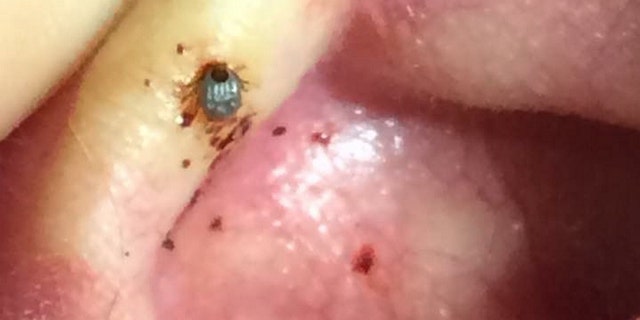Rare tick infection leaves teacher with memory loss, fatigue

Keith Poultney was teaching English in Nepal when he was bitten by a tick, which spread a rare infection throughout his body leaving him with memory loss and fatigue.
(Solent News)
A 40-year-old English teacher from the U.K. who was bitten by a tick in his ear while volunteering in Nepal two years ago said he still has trouble with his memory and coordination after the infection left him suffering from hallucinations and brain swelling.
Keith Poultney, who said he didn’t realize he had been bitten by the tick during his 2017 trip until a few days after developing discomfort in his ear, initially wasn’t concerned about his illness while in Nepal because others in his group had developed colds or the flu, according to The Sun.
“They treated me with antibiotics, but what they didn’t know was that the type of infection I had developed was resistant,” he said of his treatment in Nepal. “I flew home as planned, but the flight, a 12-hour flight via the Middle East, was the worst experience of my life.”

Poultney initially wasn’t concerned about his symptoms because others in his group had been dealing with colds, but then he developed hallucinations and severe head pain.
(Solent News)
He said at one point his temperature reached 104.9 and he developed severe head pain. He was rushed to Queen Alexandra Hospital in Portsmouth, where he was eventually diagnosed with encephalitis and a rickettsial typhus infection, which is typically transmitted by fleas, ticks, mites and lice and in some cases can be fatal.
CLICK HERE TO GET THE FOX NEWS APP
According to the Centers for Disease Control and Prevention (CDC), immediate treatment should be started in a patient with a suspected case of rickettsioses before confirmation is complete due to the rapid progression of the infection.
Transmission is most common during outdoor activities in the spring or summer months when ticks and fleas are most active, with a 5-14 day incubation period for most rickettsial diseases, meaning symptoms often don’t start until after the trip as ended. The most common rickettsial diseases found in travelers are in the spotted fever or typhus groups.
“I felt different in myself,” Poultney, who is still dealing with fatigue, told The Sun. “I had real problems with my balance and was unable to walk in a straight line. I physically felt as though I was impaired or drunk. I could not gauge space or distance and would often walk into door frames or knock things such as drinks over.”
KANSAS BOY'S 'CONSTIPATION' WAS ACTUALLY SYMPTOM OF LIVER CANCER, MOM SAYS
Nearly two years after his diagnosis and treatment, Poultney said he still has issues with his memory, and has started working with Headway, an organization that provides support to brain injury patients.
“Without Headway’s help, I know my recovery would have been slower and more frustrating,” he told The Sun. “They were there to pick me up from a very low point in my life. I know my brain has been altered and that will most likely never change. But I also know that I shouldn’t try to deal with this on my own.”
Source: Read Full Article



